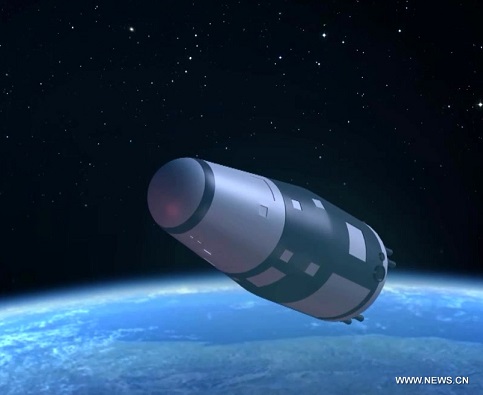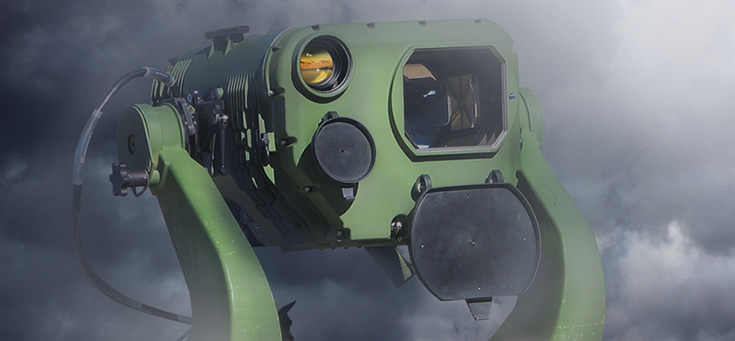
The simulation photo provided by the Chinese Academy of Sciences shows the SJ-10 satellite in space. Image credit: Xinhua/Chinese Academy of Sciences
BEIJING (BNS): China on Wednesday successfully put into space a retrievable scientific research satellite with an aim to help scientists in their study of microgravity and space life science.
The SJ-10 satellite was launched by the indigenous Long March 2-D rocket from the Jiuquan Satellite Launch Center in northwestern China's Gobi desert in the early hours of Wednesday, the official Xinhua news agency reported.
While in space, the bullet-shaped probe will house 19 experiments involving microgravity fluid physics, microgravity combustion, space material, space radiation effect, microgravity biological effect and space bio-technology, before coming back to Earth with results, it said.
One of the experiments will study early-stage development of mouse embryos in microgravity to shed light on human reproduction in space, and another studying space radiation effects on genetic stability of fruit flies and rat cells.
"All experiments conducted on SJ-10 are completely new ones that have never been done before either at home or abroad," Hu Wenrui, chief scientist of the SJ-10 mission was quoted as saying.
"They could lead to key breakthroughs in our academic research," Hu said.
The SJ-10 is the second of four scientific satellites under a Chinese Academy of Sciences (CAS) space programme. Unlike the other three, SJ-10 is returnable. It is the 25th such retrievable satellite launched by China in the past decades.
Overall, eight of the experiments on fluid physics and microgravity combustion will be carried out in the orbital module and the others in the re-entry capsule which is expected to land at Siziwang Banner in Inner Mongolia, the designated landing spot for China's Shenzhou manned space missions and a 2014 test lunar orbiter, the Xinhua report said.
 Previous Article
Previous Article Next Article
Next Article












The Indian Air Force, in its flight trials evaluation report submitted before the Defence Ministry l..
view articleAn insight into the Medium Multi-Role Combat Aircraft competition...
view articleSky enthusiasts can now spot the International Space Station (ISS) commanded by Indian-American astr..
view article